A unique tool, online and free, for mapping and spreading awareness of Italian businesses that use sustainable economic systems.
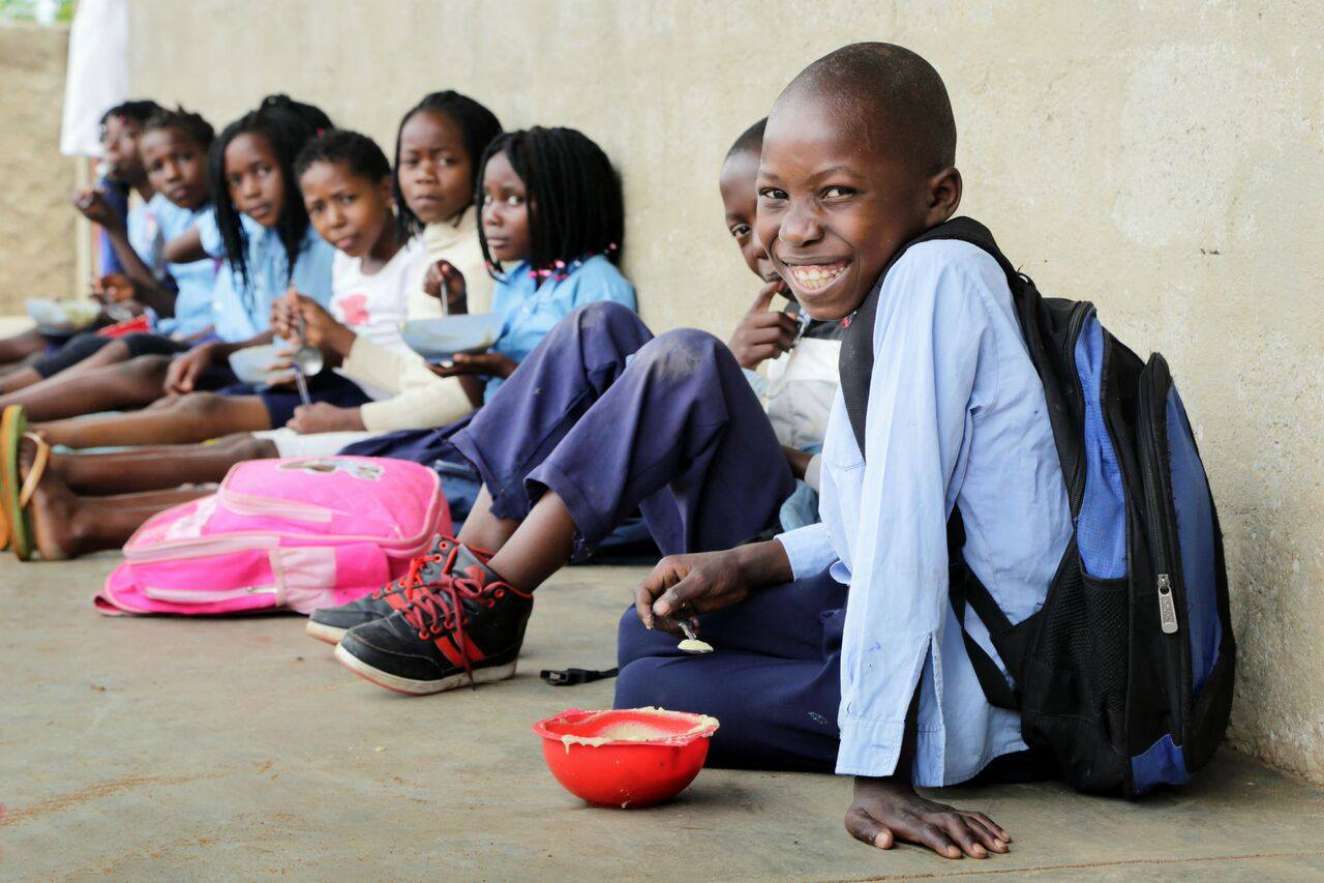
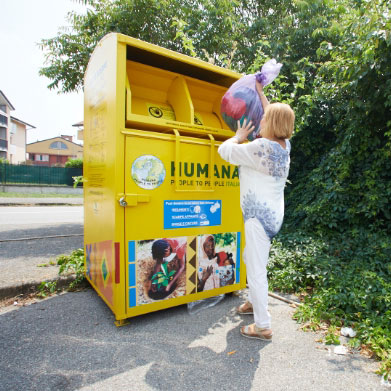
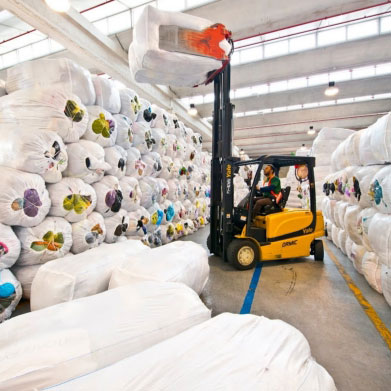
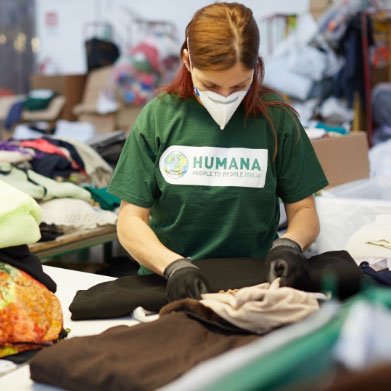
It was the 1970s when a group of Danish teachers founded a school focused on education in the field: "Travelling Folk High School" organised educational trips for students from Europe, to Africa, Asia and South America.
Today, the International Federation Humana People to People is an international network present in 45 countries, coordinating diverse international projects, with development work in the poorest regions and activities to collect, select and sell clothes in Europe and the United States. Their registered office is in Geneva, and their operational headquarters are in Zimbabwe.
Collecting used clothes is the focus of the majority of the organisations belonging to the Federation, making use of legal authorisations for the storage, transportation and sorting of clothes.
All of the organisation's earnings from the activity of collecting, selecting and selling used clothes goes to support Humana's social and environmental projects: education and training; child welfare and community development; the prevention of and fight against HIV/AIDS, malaria and tuberculosis; agriculture and food security.
In 2021, the collection of used clothes carried out by Humana around the world allowed them to finance 1,238 development projects around the world, helping 9.6 million people and creating employment for over 17,000 people.
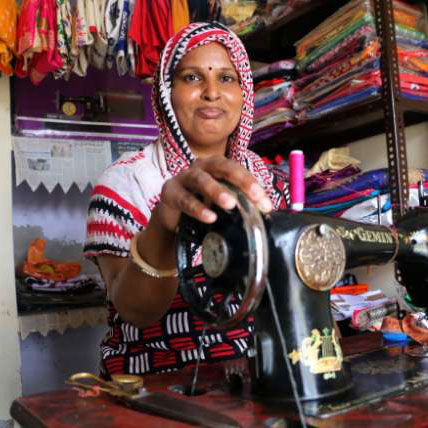
We met with Alfio Fontana, Corporate Partnership & CSR Manager at Humana, who is always busy with a great many projects.
"Some have already been launched, others are in the process of being brought to life. Sustainability has a growing weight in company strategies, and we are truly happy to be collaborating with businesses in many different sectors. What is fundamental for us is to be able to co-design with our partners. We start from a common foundation: the companies we collaborate with agree with our mission and vision, which is to be able to build a world in which solidarity between people is truly at the centre of social and economic life, and communities are able to build their own future in balance with nature. With this premise, as Humana has both an environmental and a social dimension, there really are a lot of opportunities for collaboration."
"I will just make one thing clear: it is important to remember the focus on reuse, so while a garment remains in good condition, it should be reused as it is. Obviously it is not always possible to reuse clothes, as maybe they are too worn out, or we find ourselves dealing with production waste, and here, among the various options available, is where upcycling comes into play. It is therefore a very important element of sustainability, because it allows us to avoid certain materials being thrown away.
An example of our tangible commitment to this issue can be seen in Belt Bag, a brand from the Social Cooperative Occhio del Riciclone, which makes bags and accessories created with pre and post consumption fabrics donated by the biggest Italian companies, or coming from our clothing collection operations, and redesigned through an upcycling process. The Social Cooperative is part of our network, and, as well as protecting the environment, it also promotes the employment of disadvantaged people. The goal is to carry out a social enterprise through the use of recycled materials, as a new production paradigm that is ethical, with a low environmental impact, and, in this case, is also Made in Italy.
For us, the topic of upcycling is also an important point of contact with the academic world. Indeed, we collaborate with many organisations, such as IED, Accademia del Lusso, and Domus Academy: we provide the clothes, and the students, thanks to their creativity, revolutionise them and give them value by creating real wearable works of art. The students always show a lot of enthusiasm when creating these projects, and for us this is a confirmation that younger generations are becoming more and more sensitive to environmental and social issues. In short, it's really good for us to have hope in the future."
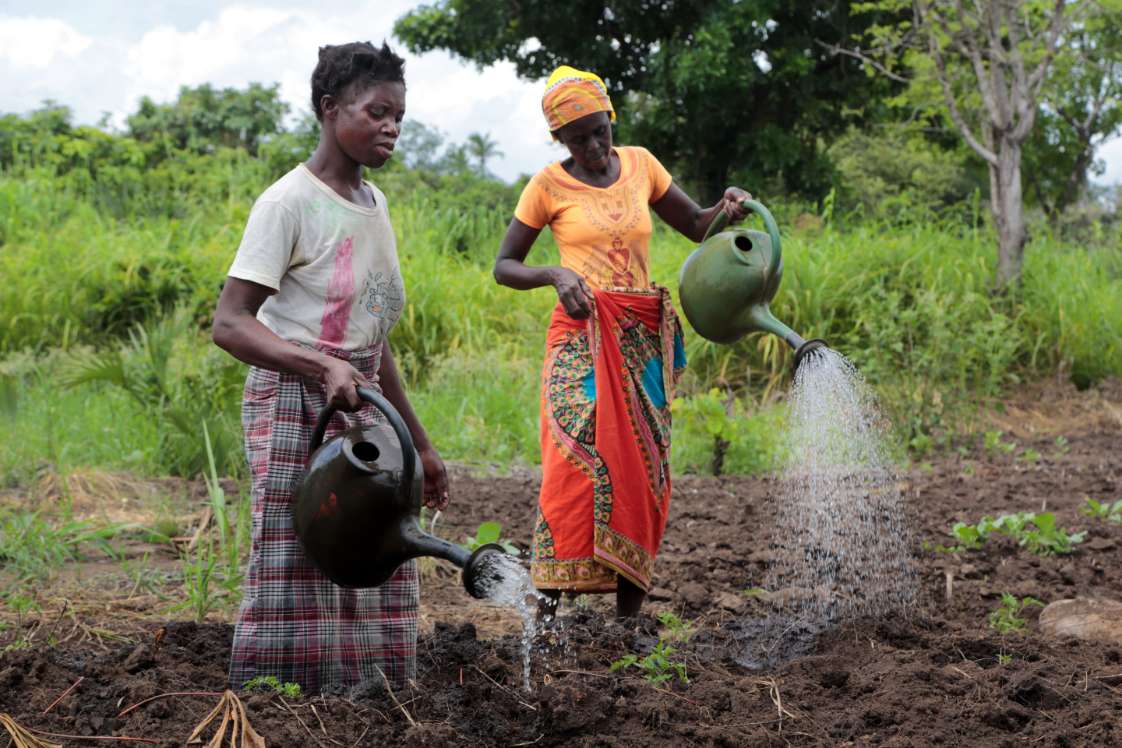
Virtuous routes. The starting point is the Humana logo bins where people bring clothes, shoes and accessories they no longer use. An exclusive network of vehicles organises collection and transport to the five Humana facilities in Italy, the largest of which is located in Pregnana Milanese, where the sorting centre is also located: 67.5% is designated for reuse as clothing, around 25.5% is recycled to reclaim the fibres, and a small proportion (7%) is sent for energy recovery. Every garment and accessory is therefore evaluated based on its characteristics: summer clothes are donated to Humana subsidiaries in Africa to support humanitarian projects active in the area. Garments are donated only in emergencies: sales are designed to be used to finance social projects with the aim of creating employment and development. Some of the winter and summer clothes are sold in Humana charity shops in Italy and around Europe. Products that cannot be used as they are (for example rags, mesh, cloth) are sold for recycling. The circle is complete and the journey begins again.
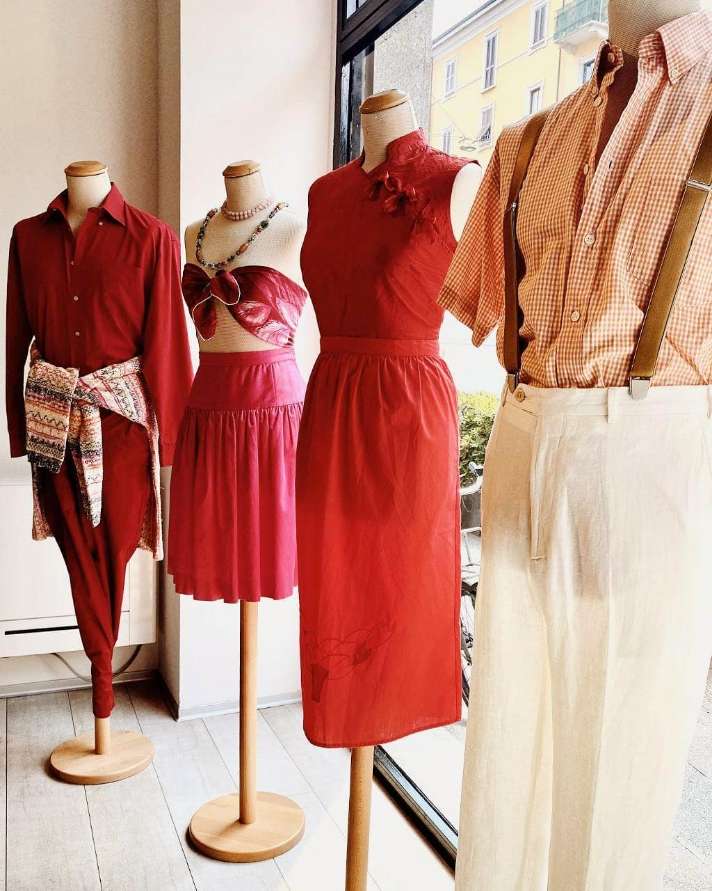
The approach to purchasing second-hand is changing over the years, and to further facilitate this change, you have written a book. How did the idea come about?
"It's true, compared to a few years ago, today buying second-hand clothes is a much more widespread practice. Our wish is to raise more awareness about the value of vintage garments and the social impact created by donating your clothes to Humana. Thanks to the journey the book takes them on through the fashion of the past, readers acquire the skills to better evaluate clothes, and then discover a fairytale ending: with such an apparently simple gesture as donating a garment, they can help us to change the world. Indeed, donating clothes to our bins and shopping at Humana Vintage are two ways to protect the planet and help us to make the dreams of many people in Africa, Asia and South America come true. Along with Stefano Sacchi, fashion consultant and professor at the Accademia del Lusso, and the vital contribution of Luca Gilardi, Retail Manager for Humana Italy, who came up with the idea, we decided to create a simple but comprehensive manual, for those looking to approach the world of vintage and sustainability. So, who better than Marina Spadafora, coordinator of Fashion Revolution Italy and ambassador for ethical fashion around the world, to write the foreword for a book that aims to unite the topic of fashion with social and environmental issues."

Compulsory waste sorting for textiles will be introduced from 2025 as a consequence of the application of Directive (EU) 2018/851 from the European Parliament and the European Council, and the extension of the legislation for Extended Producer Responsibility also to textiles. What are the benefits that this could bring to the TAM system?
"These regulatory changes confirm how central the role of the textiles sector has to be if we want to carry out a real ecological transition. The obligation for sorted textiles waste, in force in Italy from the 1st January 2022, and the implementation of the Extended Producer Responsibility regime will profoundly change the second-hand clothes sector. The crucial aspect is that institutions, industries and operators in the recycling chain are coming together to find shared solutions to the challenges that present themselves. The sorted textiles waste system is already in place for many areas in Italy, and in fact Humana has been collaborating with over 1,000 municipalities for years.
So we haven't witnessed big changes in these first few months, but over time the amount of material collected and managed will certainly increase. In light of this, the contribution from operators and municipal administrations will also be essential to develop new models that will continue to guarantee the service's economic, social and environmental sustainability. Instead, Extended Producer Responsibility will be decisive in expanding the collection system, and, as a result, improving environmental outcomes. But in order for the new system to work, all the links in the chain need to be well coordinated. In particular, reuse, which is the best option ecologically, needs to be incentivised by promoting the skills developed by operators in the second-hand sector.
Such regulatory inputs are also a very important opportunity for the textiles sector to respond to a growing push from citizens and consumers for the sustainable evolution of the entire industry. If the challenges are addressed with commitment and transparency, there will be significant reputational benefits for a sector that currently has a high impact in terms of the environment."
In Italy, Humana is present in 42 provinces, in over 1,200 municipalities, with over 5,000 street bins, and has supported 12 projects in 5 countries (Brazil, India, Malawi, Mozambique and Zambia) with a financial contribution equal to 500,618.98 euros. In 2021, Humana's clothing collection avoided the emission of over 130 million kilos of carbon dioxide - the equivalent of the work of 1,304,000 trees - and the waste of over 128 billion litres of water - the equivalent of 51,300 olympic swimming pools. They also work in schools with Education programmes for global and environmental citizenship, and run corporate volunteering initiatives, with the goal of encouraging citizen participation in a more shared, sustainable form of local development that favours the social inclusion of people in a socio-economically vulnerable position.
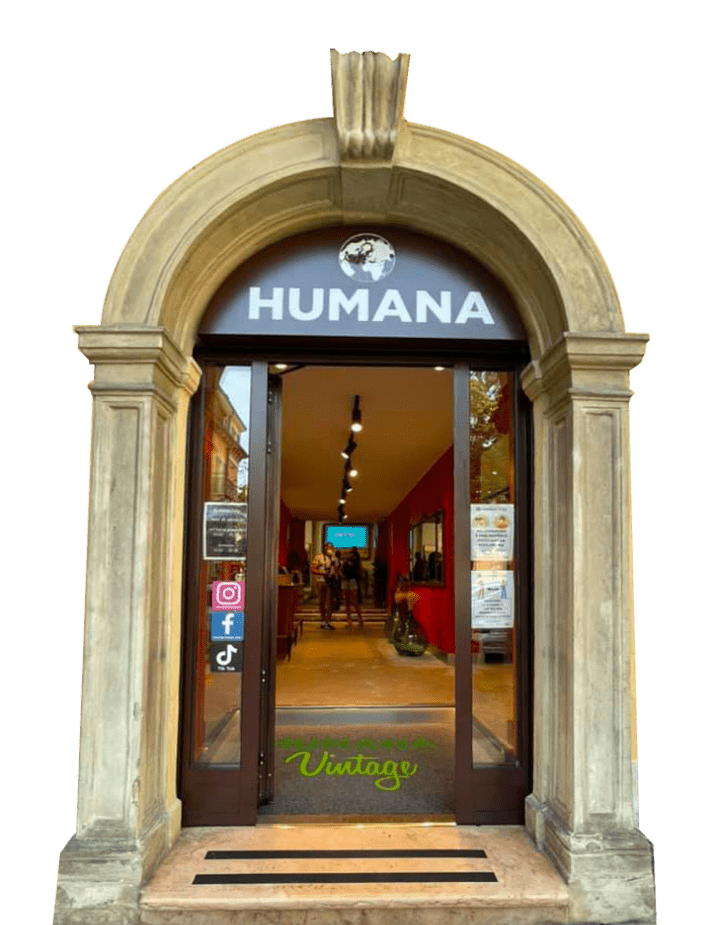
A unique tool, online and free, for mapping and spreading awareness of Italian businesses that use sustainable economic systems.
A journey through the life cycle of the raw material that is 100% recyclable forever. Leading the way are the awareness-raising activities and initiatives of RICREA.
